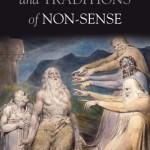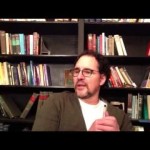We run our website the way we wished the whole internet worked: we provide high quality original content with no ads. We are funded solely by your direct support. Please consider supporting this project.
How do you respond to Romans 8:29?
“For whom he foreknew he also predestined to be conformed to the image of his Son, in order that he might be the firstborn within a large family.”
One of the greatest treasures given to believers when they open their hearts to the Lord is the promise that they shall certainly be “conformed to the image of [God’s] son.” However much we may struggle with sin in this present age, we may know that if we continue to trust in Jesus we will someday be like Jesus. This much is predestined for us.
But what does Paul mean when he says that this Christ-likeness is predestined for those “whom [God] foreknew?” Some argue that this suggests that God knows from all eternity who will and will not believe in Jesus. Unfortunately, the verse actually contradicts their view. Paul is referring to a specific group of people—those “whom [God] foreknew…” This group obviously contrasts with a group of people whom God did not foreknow. If the classical doctrine of foreknowledge is correct, however, God foreknows everything from all eternity. How then can Paul speak about a particular group of people whom he foreknew?
To understand the verse correctly we have to remember that the concept of “knowing someone” was often equivalent to “loving someone” in Jewish culture. To “foreknow” someone was thus to “love them ahead of time.” This is exactly how Paul uses the term two chapters later when he says, “God has not rejected his people [Israel] whom he foreknew” (11:2). We may thus conclude that just as God loved the nation of Israel ahead of time, so God loved the Church ahead of time. He predestined this group of people “to be conformed to the image of his Son.” Note that what is loved ahead of time in both Romans 8:29 and 11:2 is a corporate body, not particular individuals. When individuals freely accept the conditions of participating in that corporate body, all that is true of that body becomes true of them. They are now part of the body that was loved ahead of time by God and predestined to be conformed to the image of Jesus Christ. But whether or not they would freely decide to align themselves with this body was neither foreknown nor predestined.
Category: Q&A
Tags: Open Theism, Q&A
Topics: Open Theism, Responding to Objections
Verse: Romans 8
Related Reading

Greg Boyd Chats with Thomas Jay Oord (podcast)
Greg talks with Thomas Jay Oord about what God can and can’t do. Episode 674 http://traffic.libsyn.com/askgregboyd/Episode_0674.mp3

Podcast: What is the Difference Between Open Theism and Process Thought?
Greg openly processes the major differences between Open Theism and Process Thought. http://traffic.libsyn.com/askgregboyd/Episode_0218.mp3

God of Sense and Traditions of Non-Sense
As the title suggests, in his book, God’s Problem: How The Bible Fails to Answer Our Most Important Question – Why We Suffer, Bart Ehrman argues that the Bible has nothing compelling to say about the problem of evil. Well, I just put down a beautifully written four-hundred and fifty page book that compellingly argues…

Podcast: Are We REALLY Free if God is Going to Ultimately Trump Our Choices?
Greg looks at the nature of freewill, specifically: how God’s promises constricts human free will. http://traffic.libsyn.com/askgregboyd/Episode_0070.mp3

Free Will: The origin of evil
In this continuing series on free will, Greg discusses how evil can only be accounted for if we acknowledge free will. This is especially true if you believe that God is good.

The Rorschach Test
The choices we make will either increase or decrease our ability to recognize light when we see it. As we choose goodness, we increase our capacity for goodness. What do you see when you read the Bible or look at God or interact with others? Everything is a Rorschach test to some extent, revealing the light…
